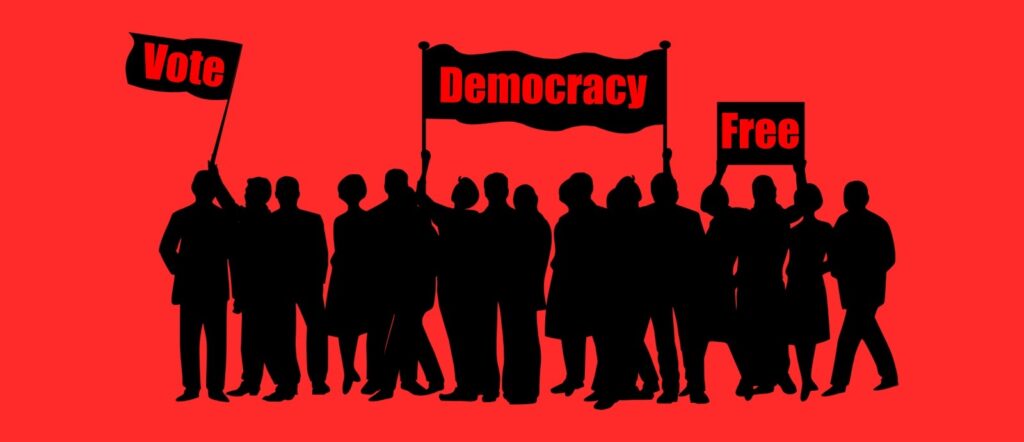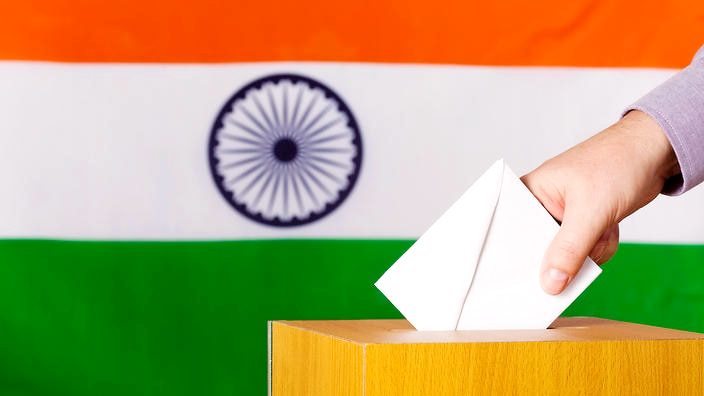
What is the meaning of Public Funding in election
India became independent in 1947 and a Republic in 1950 and it chose to be a democracy governed by representative elected by people. It was famously said by Abhram Lincoln on democracy being ‘of the people, by the people for the people’. While no doubt as a nation we have strived to live up to this ideal, a dispassionate analysis would find many a flaw, an important one being soaring costs of that periodic exercise that is very basis of a democracy namely, the elections.
A close scrutiny and a look at the warts is necessary to understand how the exercise fares in terms of Ethics and Integrity.
India became a republic and chose and universal adult franchise notwithstanding dire predictions that warned of the chaos. With an overwhelmingly illiterate (85%) population and with female literacy at an abysmally low 7.5% many prognosticated the failure of the experiment. But our leaders had a fervent and abiding faith on the robust common sense and native wisdom of the ordinary men and women of this country and chose empower all of them without discriminating on the basis of gender, economic status or educational attainments.
That faith has been amply repaid and the country has remained wedded to democracy over this long period of many trials and tribulations-famines, floods, wars, economic deprivation, communal riots, caste conflicts, leftist extremism and so on.
Notwithstanding dark prognostications, the citizens of this country have expressed their faith in democracy by voting in increasing numbers in elections after election in the last 70 years, the country having seen 17 general elections to the parliament and over 350 elections to the state assemblies.
THE PROGRESS
However, it has not been a smooth ride. By the time of the 4th Lok Sabha elections (1967), party hopping by elected representative became a frequent phenomenon. Then came a dark period of emergency and it excesses and extension of the life of Lok Sabha but the Nation quickly overcome the hurdle. While democracy was restored, the many malpractices in elections like booth capturing, intimidation of votes, vote buying and the like put a question mark our democratic credentials.
While great strides were made in the conduct of elections by the Elections Commission of India by bringing in the Electronic Voting Machine (EVM), which was later supplemented by a paper trail to make it doubly secure, the goal of a completely free and fair elections has been elusive.

FREE AND FAIR ELECTIONS
Politics is acknowledgement as a means to the pursuit of power and in a democracy the levels of power are accessed through the medium of periodically held elections. But the quality of elections, not the mere fact that they are held periodically, will decide whether they are free and fair on the test unfortunately we still have much distance to travel.
Over the years, the Election Commission has done a commendable job to make elections free from undue influences by ensuring clean electoral rolls, increased number of polling stations for voter’s convince preventive arrests and security protocols to counter threat and intimidation to vulnerable sections of the voters, increased security at the polling stations to prevent booth capturing and vote- stuffing, strict implementation of the model code of conduct to deny advantage to the government of the day and so on.
But elections have also to be ‘fair’. Many of the steps outlined above have brought a modicum of fairness but in two aspects the failure is palpable:
- Criminalization of politics, and (2) Runway election expenditure.
Election law precludes those convicted of offences from contesting but thanks to delays in criminal proceedings combined with the ‘win ability’ formula adopted by parties, the number of charge-sheeted Law Makers is increasing, and worse is that of those charged with heinous crimes like robbery, dacoity, and rape.
| 2009 | 2014 | 2019 | |
| Winner with Criminal case (%) | 30 | 34 | 43 |
| Winners with serious Criminal cases (%) | 14 | 21 | 29 |
The order sore point is the runway expenditure in elections. Elections law prescribes, since the beginning, limits to expenditure by a candidate, the avowed laudable objective being a level playing field, so that ‘good candidates’ do not suffer lack of funds; and money should not be the determining factor in elections. But unfortunately the rule is observed more in breach.
While there is a ceiling on candidate’s expenditure, there is none of the party’s. but more than this given these facts, it is difficult to believe that anybody who merely has a burning desire to serve the public but without a burgeoning pursue to match, can ever aspire to be a MP or MLA unless political parties sponsor candidates on their merits and not on their financial status. It may seem utopian and churlish to say that ceiling on expenditure of individuals candidates meets any purpose any more notwithstanding the high-thinking behind it.
Party Finances
While there is a ceiling on the individual’s candidate’s election spends, there is no limit on party expenditure, a big loophole which the political parties are loath to plug.
Party finances and their sources in our country is a grey area. While the law requires reporting details of the donations above Rs. 20000/- parties are adept at avoiding it many, claiming more than 90% of the receipts to be permitting tax exemption to corporate donations but the corporates have been wary or reveling their identity for fear of incurring displeasure of one or the other party.
An attempt made 2013 to allow, under the Income Tax Act, Electoral Trusts to be formed by a company to which contributions can be made by other companies, also did not lead to much transparency. Electoral Bonds scheme also 2016 was no improvement as donor’s identity is kept confidential.
Political Finance is thus grey area with a not our parliament has shown any urgency or interest to improve matters. It is difficult therefore to believe that the Supreme Court’s fond hope will ever come true.
It should be open to individual or any political party, howsoever small, to contest an election on a footing of equality with any other individuals or political party, howsoever rich and well financed it may be, and no individual or political party should be able to secure an advantage over others by reason of its superior financial strength.
That sentiment however has led to the demand of state funding of political parties. Further, there is a justified view that political parties, which can undermine democracy, subvert and compromise national interest.
State Funding is prevalent extensively in European countries but there is also acknowledgement there that it has not ended political corruption. A study report found; ‘despite the significant amount of public money disbursed in order to make political corruption has remained a fundamentals problem in the region; and that public funding schemes seen not to have reached this fundamental objective’.
A further point is the apprehension voiced; such a high dependency on state resources may risk sustaining political actors that are out of touch with social reality, thereby fueling anti-party sentiments.
Our Law Commissions have also concluded that full state Funding is not feasible, citing issues like discrimination, lack of inner party democracy, and lack of transparency in political actors to abide by it in letter and sprint, any state funding will be a sheer waste of public monies and so cannot be supported.
